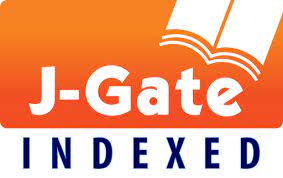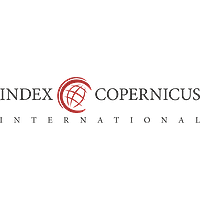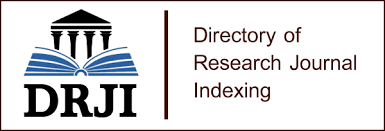FUNCTIONAL CONVERGENCE: A WAY FORWARD TO IMPROVE CORPORATE GOVERNANCE IN MALAYSIA
Abstract
Malaysia is generally characterized as having concentrated ownership structure in its corporate sector dominated by family-owned and state-owned companies. Although there seems to be a shift in ownership and control, there is nevertheless preservation of concentration of ownership and control. In contrast, the Anglo-American system has a dispersed ownership system which has the characteristics of an active share market and takeovers, high market transparency and rigorous disclosure standards. Despite the obvious differences, the concentrated ownership systems have been transplanting Anglo-American laws, regulations, codes and guidelines into the body of their corporate governance frameworks in the hope of precipitating corporate governance reform and strengthening financial and economic standards. Although the main objective of convergence of corporate governance is to improve a country’s governance standard, the widespread reforms by way of converging practices have the potential to isolate the domestic problems. In particular, the mismatch of legal rules and regulations between dispersed ownership systems and concentrated ownership systems. Thus, this paper will look at the popular concept of convergence of corporate governance as a method to ameliorate the differences between systems. This paper argues that functional convergence can create a corporate governance structure that is closer to home without resort to direct formal regulation that carries the risks of cosmetic changes to the system. Examples from the US and the UK will be of useful insights to provide a sound solution to improve corporate governance in Malaysia.
References
American Bar Association Section of Corporation, Banking and Business Law’s Committee on Corporate Laws. (2004). Corporate Director’s Guidebook VII.
Ayres, I. and J. Braithwaite (1992). Responsive regulation : transcending the deregulation debate. New York ; Oxford, Oxford University Press.
Bebchuk, L. A. and M. J. Roe (1999). "A Theory of Path Dependence in Corporate Ownership and Governance." Stanford Law Review 52(November): 127.
Black, B. and R. H. Kraakman (1996). "A Self-Enforcing Model of Corporate Law." Harvard Law Review 109: 1911, p.1913.
Bratton, W. W. and J. A. McCahery "Comparative Corporate Governance and the Theory of the Firm: The Case Against Global Cross Reference." Columbia Journal of Transnational Law 38: 213.
Buck, T. (2003). "Modern Russian Corporate Governance: Convergence Forces or Product of Russia's History?" Journal of World Business 38: 299, p.302.
Carney, R. W. and T. B. Child (2013). "Changes to the Ownership and Control of East Asian Corporations Between 1996 and 2008: The Primacy of politics." Journal of Financial Economics107(2): 494-513.
Coffee, J. C. J. (1999). "The Future As History: The Prospects for Global Convergence in Corporate Governance and Its Implications." Northwestern University Law Review 93(3): 641.
Coffee, J.C.J., ‘Convergence and its Critics’ in Joseph A. McCahery, Piet Moerland, Theo Raaijmakers and Luc Renneboog (eds), Corporate Governance Regimes: Convergence and Diversity (OUP 2002), 86.
Coffee, J. C. J. (2005). "A Theory of Corporate Scandals : Why the US and Europe Differ." Oxford Review of Economic Policy 21(2): 198.
Delaware General Corporation Law
Frank H. Easterbrook, International Corporate Differences: Markets or Law? Journal of Applied Corporate Finance, Volume 9 Number 4 Winter (1997): 26.
Fiss, P. C. and E. J. Zajac (2004). "The Diffusion of Ideas over Contested Terrain: The (Non)adoption of a Shareholder Value Orientation among German Firms." Administrative Science Quarterly 49(4, December): 501.
Gillan, S. L. and L. T. Starks (2007). "The Evolution of Shareholder Activism in the United States." SSRN eLibrary.
Gillespie, J. (2006). Transplanting Commercial Law Reform : developing a 'rule of law' in Vietnam. Aldershot, Ashgate.
Gilson, R. J. (2001). "Globalizing Corporate Governance: Convergence of Form or Function." The American Journal of Comparative Law 49(2): 329
Gordon, J. N. and M. J. Roe (2004). Convergence and Persistence in Corporate Governance [Electronic book]. Cambridge, Cambridge University Press.
Hansmann, H. and R. H. Kraakman (2001). "The End of History for Corporate Law." The Georgetown Law Journal 89: 439.
Hansmann, H. and R. H. Kraakman, ‘Towards a Single Model of Corporate Law’ in Joseph A. McCahery, Piet Moerland, Theo Raaijmakers and Luc Renneboog (eds), Corporate Governance Regimes : Convergence and Diversity (OUP 2002), 69.
Hôpner, M. (2001). "Corporate Governance in Transition: Ten Empirical Findings on Shareholder Value and Industrial Relations in Germany." SSRN eLibrary.
Iain MacNeil, ‘Adaptation And Convergence in Corporate Governance: The Case of Chinese Listed Companies’ (2002) 2 Part 2 Journal of Corporate Law Studies, 289, p.295-296.
Kahan, M. and E. B. Rock (2010). "Embattled CEOs." Texas Law Review 88: 987
Katharina Pistor, Patterns of Legal Change: Shareholder and Creditor Rights in Transition Economies (Working Paper No. 49, 2000) 2.
Khanna, T., J. Kogan, et al. (2006). "Globalization And Similarities In Corporate Governance: A Cross-Country Analysis." The Review of Economics and Statistics 88(1, February): 69.
La Porta, R., F. Lopez-de-Silanes, et al. (2000). "Investor protection and corporate governance." Journal of Financial Economics 58(1–2): 3-27.
Legrand, P. (1997). "The Impossibility of 'Legal Transplants'." Maastricht Journal of European and Comparative Law 4(2): 111.
Meyer, J. W. and B. Rowan (1977). "Institutionalized Organizations: Formal Structure as Myth and Ceremony." American Journal of Sociology 83(2, September): 340.
Model Business Corporation Act.
Mohammad Rizal Salim. "Are Legal Transplants Impossible?" Journal of Comparative Law, (2009).
Paredes, T. A. (2004). "A Systems Approach To Corporate Governance Reform: Why Importing U.S. Corporate Law Isn't The Answer." William and Mary Law Review 45: 1055.
Rachagan, Shanty and Aiman Nariman Mohd Sulaiman (2014). Controlling Shareholders: Issues and Challenges for Shareholders’ Empowerment in Directors’ Remuneration in Corporate Malaysia. Asian Journal of Comparative Law, 9, pp 267-294. doi:10.1017/S2194607800001009.
Rasheed (2009). "Convergence of Corporate Governance: Critical Review and Future Directions." Corporate Governance: An International Review 17(3): 388.
Reisberg, A; Lowry, J; (2012) Pettet's Company Law: Company Law & Corporate Finance (Lowry and Reisberg). (4th edition ed.). Longman, Pearson Education: UK.
Roe, M. J. (1995-1996). "Chaos and Evolution in Law and Economics." Harvard Law Review 109(January 1996): 641.
Roe, M. J. (2000-2001). "Political Preconditions to Separating Ownership from Corporate Control." Standford Law Review 53(Dec. 2000): 540.
Sassen, S. (1998). The Impact of The New Technologies and Globalization on Cities. Globalization and the World of Large Cities. F.-C. Lo and Y.-M. Yeung, United Nations University Press, p. 194-214.
Sperber, D. (1996). “Learning to Pay Attention.†The Times Literary Supplement 14 (December): Col. 3.
Stephen M. Bainbridge, The New Corporate Governance In Theory And Practice (OUP, 2008). Teubner, G. (1998). "Legal Irritants: Good Faith in British Law or How Unifying Law Ends Up
in New Divergences." The Modern Law Review 61(January): 11.
Watson, A. (1978). "Comparative Law and Legal Change." The Cambridge Law Journal 37(2):313-336.
Watson, A. (1993). Legal Transplants: An Approach to Comparative Law. Athens, Ga.; London, University of Georgia Press.
Wymeersch, E. (2002). Convergence or Divergence in Corporate Governance Patterns in Western Europe? Corporate Governance Regimes: Convergence and Diversity.
Yoshikawa, T. and A. A. Rasheed (2009). "Convergence of Corporate Governance: Critical Review and Future Directions." Corporate Governance: An International Review 17(3): 388.
Published
How to Cite
Issue
Section
License
Copyrights for articles published in Journal of Asian and African Social Science and Humanities are retained by the authors, with first publication rights granted to the journal. The journal/publisher is not responsible for subsequent uses of the work. It is the author's responsibility to bring an infringement action if so desired by the author.
Articles published in Journal of Asian and African Social Science and Humanities are published under the Creative Commons Attribution (CC-BY) license, which permits others to distribute, remix, tweak, and build upon your work as long as they credit you for the original creation.
Â














